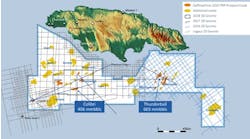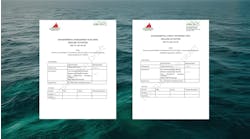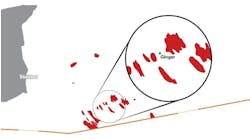Offshore staff
LYSAKER, Norway – Aker BP has revised its forward investment program in response to the uncertainty caused by the COVID-19 crisis.
Among the main changes to are:
- Non-sanctioned field development projects put on hold, reducing 2020 capex by 20%, with a further $1-$2 billion of cuts likely in 2021-22
- Exploration spending reduced by 20% this year, with further significant cuts planned for 2021-22
- Production costs to be pegged back to $7-8/boe, down around 20% from previous guidance, with all non-critical activities postponed.
The company’s production forecast for 2020 remains unchanged at 205-220 MMboe/d.
CEO Karl Johnny Hersvik said: “Our industry is currently facing an extremely challenging situation. In Aker BP, we have been working systematically over many years to improve efficiency and reduce costs, to build a significant portfolio of profitable investment opportunities, and to strengthen our financial capacity.
“With the measures we are now undertaking, Aker BP is well prepared to face the challenging market situation, and we have the financial resources to pursue value accretive growth opportunities ahead.”
The company had previously budgeted $1.5 billion capex for Norwegian field developments this year, along with $500 million for exploration and $200 million for abandonment programs.
This year’s planned expenditure relates mainly to the Johan Sverdrup Phase II and Ærfugl Phase I projects and the completion of the Valhall Flank West project, all of which will proceed. But the non-sanctioned Hod redevelopment in the Valhall area has been put on hold.
Aker BP’s exploration line-up for 2020 had comprised 10 wells, but in co-operation with its partners, the company has already decided to postpone two of these wells.
As for production costs, the company is cancelling or postponing activities considered not vital in terms of maintaining safe and stable operations, with substantial cuts to its planned maintenance and modification activities.
The company added it would continue to examine further ways of cutting costs and improving efficiency across all its activities.
To minimize the risks related to COVID-19, the company is reducing the activity level and numbers of its offshore personnel to a minimum, and has also put in place measures to prevent the COVID-19 infection from reaching its offshore facilities.
No cases of infection have so far been reported from any of the facilities, but the company is also reviewing its contingency plans to ensure it is prepared in case of an escalation of the situation.
03/24/2020



